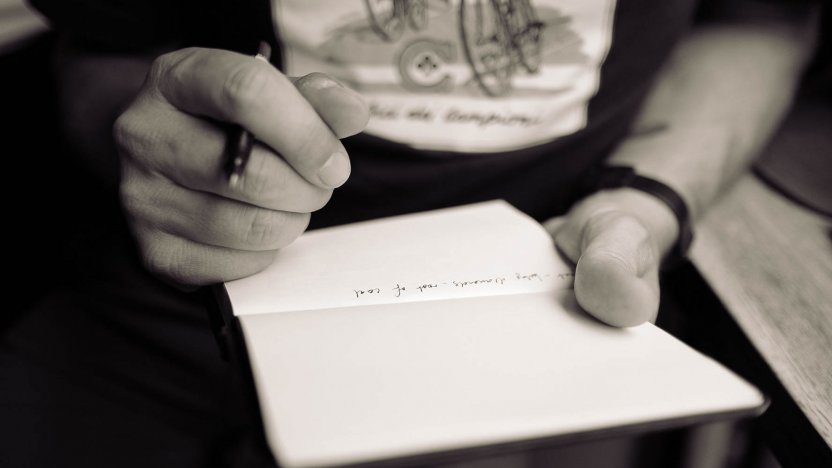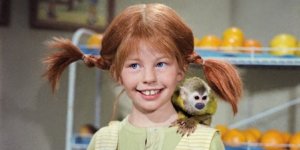Copyright: The latest adventure of Pippi Longstocking

The estate of Swedish author Astrid Lindgren successfully established last year that a German version of the song ‘Hey, Pippi Longstocking’ infringed its copyright. To mark the launch of the new official version of the Pippi Longstocking song this month, Koen de Winder examines the court case and what it means for the character’s legacy.
She is the strongest girl in the world and can even lift a horse one-handed! She lives, together with her monkey Mr Nilsson and her horse Lilla Gubben, in Villa Villekulla. And, she comes from the imagination of Swedish author Astrid Lindgren, whose first book about Pippi Longstocking appeared in 1945. Since then, Lindgren’s series of Pippi books have been translated into more than 50 languages, and there are many films, musicals and plays about the popular character’s life.
© The Astrid Lindgren Company / AB Svensk Filmindustri
Unsurprisingly, the copyright to the works is strictly monitored. In 2017, Lindgren’s estate filed a lawsuit against a German production company on the grounds that its German version of the song ‘Hey, Pippi Longstocking’ infringed the copyright of the original Swedish song.
What does copyright protect?
Copyright is the exclusive right of the maker of a work to make it public and reproduce it. This can include, for example, a book, music, a scientific publication or a work of art. The copyright rests with its maker, in this case with the author, who has the exclusive right to exploit the work and can set conditions for others who wish to use it.
Unlike trademark or design protection, copyright is a non-registered right. It comes into being automatically on a work’s creation. The only condition is that the work has to be the intellectual creation of its maker and that this creation is actually produced in some way, i.e. written or performed. In most jurisdictions, the copyright for literary works is valid for 70 years after the death of the author and can be transferred via copyright assignment.
The song at the centre of the dispute
The song ‘Here comes Pippi Longstocking’ appears in the original Swedish version of the Pippi Longstocking television series and in various Pippi Longstocking films. In 1969, a German production company commissioned a third party (Dr F W, the co-defendant) to make a German-language version of the song entitled ‘Hey, Pippi Langstrumpf’. This was later rewritten, without permission, for the German version of the film Pippi Longstocking on the Run.
The first version of the song credited as joint authors Dr F W and Astrid Lindgren. In 1987, Dr F W was named as the sole author and original publisher of the second version of the song ‘Hey, Pippi Langstrumpf’. In 2006, almost 20 years later, Lindgren’s estate became aware of the work and, in 2017, after the exchange of many letters, Astrid Lindgren's heirs filed a case at the Regional Court of Hamburg.
Its main question was whether the text of the second song constituted a free use or an adaptation of the fictional character Pippi Longstocking. If the lyrics were an adaptation, the consent of Astrid Lindgren or her legal successors would be required.
The Court established that the text would constitute an adaptation "when the reference to the character (Pippi Longstocking) is also accompanied by the adoption of essential external features and personal characteristics associated with the character". In addition, this would have to lead to the viewer thinking that the character is actually depicted or described by the lyrics.
Finding character in lyrics
The Court found that the defendant's lyrics did have a direct connection to the character Pippi Longstocking, as created by Astrid Lindgren. In addition to the use of the name 'Pippi Longstocking', various characteristic features can also be found in the lyrics, such as her extraordinary living conditions and financial circumstances.
In addition, her imagination, wordplay and idiosyncratic handling of universal rules, such as mathematics, was also identified by the court. In particular, it referred to the passage from the song that reads in the English translation: "two by three makes four / Widdewiddewitt and three are nine / I re-create my world / Just the way it suits me”.
Based on the above, the Court established that the German song is an adaptation and therefore requires the consent of Astrid Lindgren or her legal successors. In the absence of such consent, copyright infringement was established and the claim for damages was granted.
Implications for unauthorised translations
The consequences of the recent judgement extend beyond the German version of the Pippi Longstocking song. For many years, Lindgren's estate has been waging legal battles against incorrect translations of the song, illustrating how complex copyright law can be.
At the beginning of this month (July 2021), the estate adjusted all versions, including the English version, of the Pippi Longstocking song in order to bring all versions closer to the original lyrics and to establish one official and uniform version, which will appear in all new Pippi Longstocking episodes and in all languages.
For further information or specific advice on copyright law, please speak to your Novagraaf attorney or contact us.
Koen de Winder works in Novagraaf’s Knowledge Management department and is based in Amsterdam.
